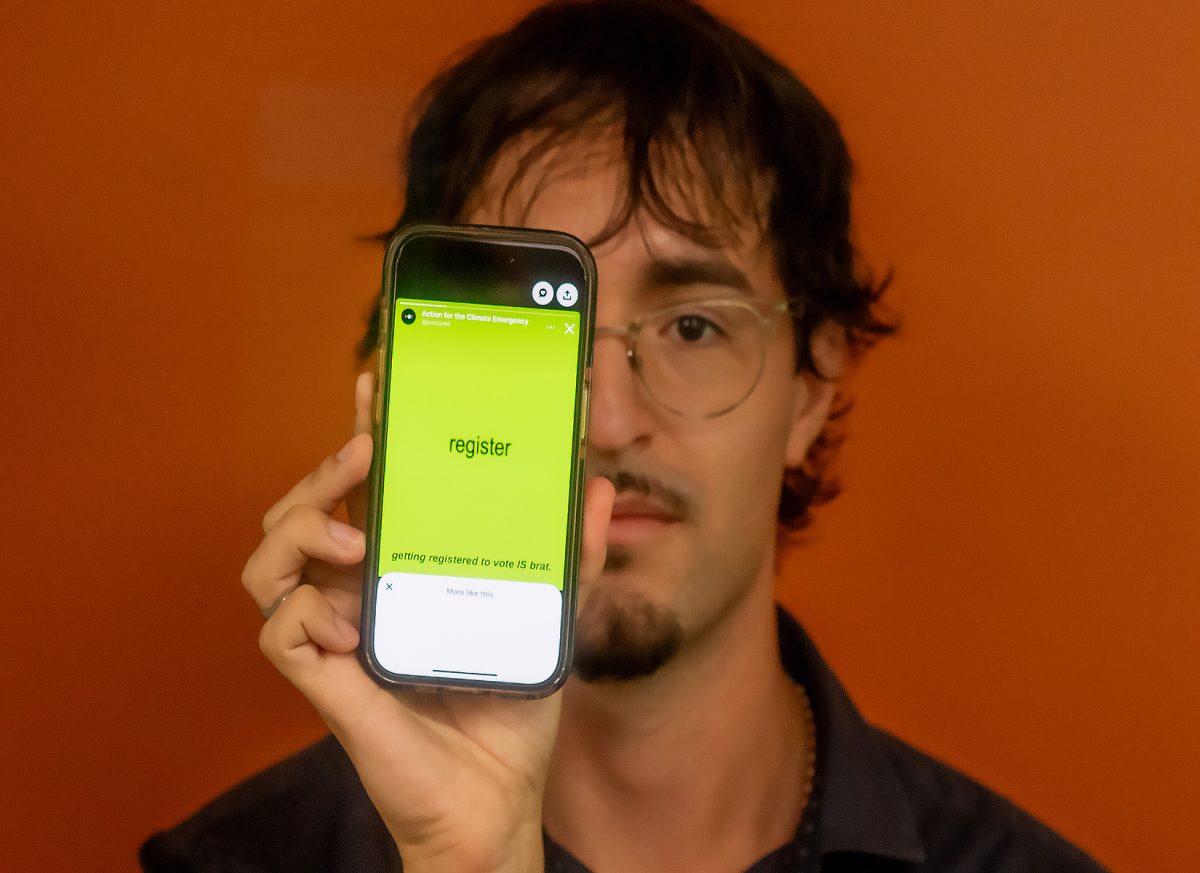With more members of Gen Z reaching voting age, the face of our engagement in politics continues to undergo a transformation. One where coconut emojis have turned into critical symbols of political engagement, trending hashtags have informed the public on key political issues, and Charli XCX’s “BRAT” has become the younger generation’s anthem for the Democratic movement.
The emergence of Vice President Kamala Harris as the Democratic presidential nominee has sparked a wave of online activity, with memes and phrases like “Kamala is Brat” and “Project Coconut” quickly becoming popular, particularly among Gen Z.
Harris’s campaign team has been quick to capitalize off these trends. For example, when Charli XCX publicly endorsed Harris by tweeting “Kamala Is Brat” in reference to her latest album, the post received significant attention. Harris’s campaign has since embraced this momentum, flooding social media with references that resonate strongly with younger audiences.
Similarly, a recent clip of Harris went viral on TikTok. In a speech given at a White House event last year, Harris shared an important message her mother used to tell her when she was growing up. “You think you just fell out of a coconut tree?” Harris said quoting her mother. “You exist in the context of all in which you live and what came before you.”
The phrase —in its apparent nonsensical nature— sparked a wave of “coconut” references on TikTok, with thousands of users creating videos using Harris’s remarks as the audio. Recognizing the potential, Harris’s campaign team updated their bios across their social media platforms in an apparent nod to the quote, with the simple statement “Providing Context”.
On the other side of the political spectrum, Project 2025, a Republican-backed platform for overhauling the federal government, has gained significant traction online.
The hashtag #Project2025 has accumulated over 30,000 videos on TikTok, sparking debates about its implications. Some view it as a guide to reducing government oversight, while others fear it could lead to authoritarianism.
This shift in how political information is consumed and discussed is reflected in a Pew Research Center analysis, which found that nearly 19% of U.S. adults primarily get their political news from social media.
The fast-paced and condensed style of information typical of social media videos make complex topics more accessible and engaging for everyday Americans.
Jesus Reynaga, a 23-year-old political science major and senior at UTEP, spoke about the impact social media has on shaping opinions and mindsets, particularly among younger voters.
“This 2024 election is something where both sides are trying to tap into the youth through social media,” said Reynaga. “You have Trump engaging with streamers, and Kamala with social media creators, musicians, artists, primarily because they know that voter turnout is mainly older demographics.”
Reynaga believes that there is huge political potential with younger voters, as they do make up more of the eligible voting demographic, despite their historically lower turnout rates.
Dr. Melissa Baker, a professor of political science at UTEP, furthered this sentiment.
“There’s some data that suggests that voter registration of young voters has risen a lot more than older voters in the last month,” said Baker. “If meme culture can spur that kind of political engagement where people are at least registering to vote, you’d think downstream that we’d probably see more young voter turnout than we would’ve otherwise.”
This potential shift in young voter engagement may represent a broader cultural change driven by how younger generations interact with politics.
“Politics has been so serious in the last eight years,” Baker said. “Meme culture has changed that dynamic, bringing joy back into politics. People have something to look forward to and laugh about.”
As the 2024 election approaches, the influence of social media on politics continues to grow. For younger voters, these platforms offer both opportunities for engagement and challenges in navigating the complex and often polarized world of online political discourse— one emoji, one hashtag and one viral moment at a time.
Rumi Sevilla is a staff reporter for The Prospector and may be reached at [email protected]









